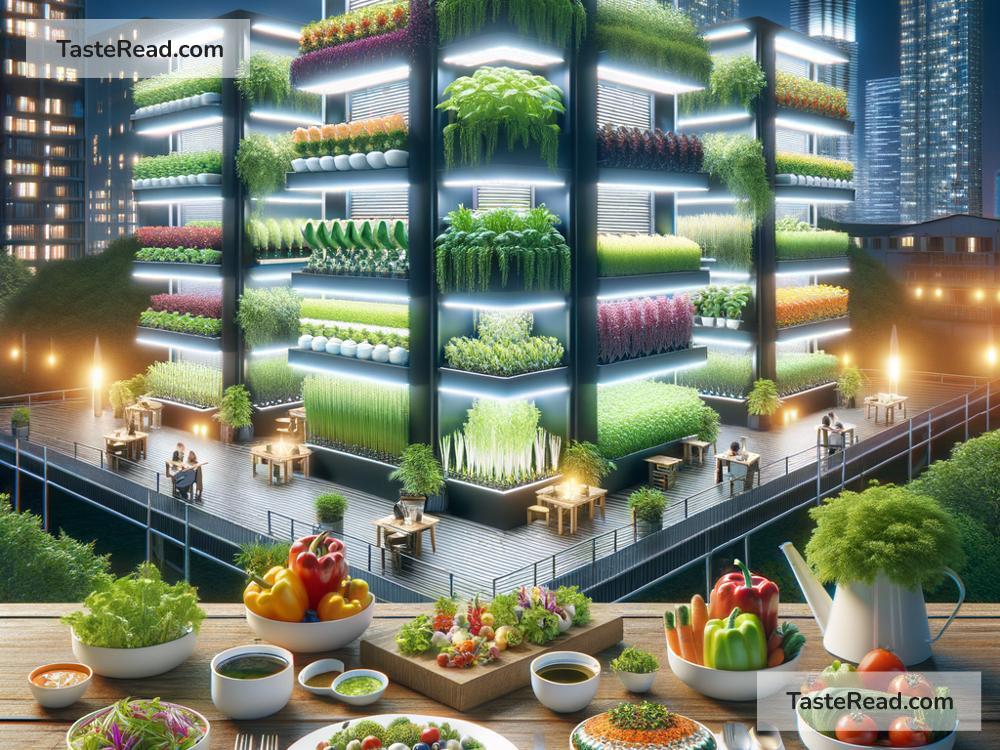The Future of Food and Inclusive Governance: Building a Better Tomorrow
Food is one of life’s essentials. It nourishes our bodies, keeps us healthy, and brings people together. But as our world changes due to population growth, environmental challenges, and shifting economies, the way we produce and consume food also needs to evolve. Alongside these changes, inclusive governance — where everyone has a say in decisions that affect them — will play a critical role in creating a fair and sustainable food future. Let’s explore how these two ideas intertwine and can lead us to a brighter tomorrow.
The Future of Food: Challenges and Opportunities
1. Feeding a Growing Population
The world’s population is expected to reach nearly 10 billion by 2050. This means demand for food will be higher than ever before. However, traditional farming may struggle to meet the needs of this growing population without harming the planet. Overusing farmland can lead to soil degradation, climate change may bring unpredictable weather, and global water shortages could limit what farmers can grow.
The good news? Innovations in agriculture offer hope. Techniques like vertical farming (growing crops in stacked layers indoors) and precision agriculture (using technology to manage crops and livestock) are gaining traction. These methods use fewer resources and can produce food more efficiently. Additionally, lab-grown meat and plant-based proteins could play a significant role in reducing the environmental impact of food production.
2. Tackling Food Waste
One-third of all food produced globally is wasted, whether it’s lost before reaching consumers or discarded after purchase. This not only wastes valuable resources but also contributes to greenhouse gas emissions. Future food systems will need to focus on reducing waste through smarter packaging, better storage technology, and systems that redistribute surplus food to those in need.
3. Making Food Accessible to All
Today, many people around the world go hungry, while others have more food than they can consume. In the future, addressing inequality will be key to building food systems that serve everyone. Technology can help here too — mobile apps can connect farmers directly to buyers, reducing costs, while blockchain technology can make supply chains more efficient and transparent.
Governments will also need to step up, ensuring food policies address the needs of all communities, especially vulnerable ones. But for these policies to succeed, inclusive governance must be at the heart of decision-making.
What is Inclusive Governance?
Inclusive governance is a way of making decisions that ensures everyone, regardless of their age, income, gender, or background, has a voice. It’s about fairness and teamwork, where leaders listen to communities and include them in shaping their future.
When applied to food systems, inclusive governance can create policies that reflect the diverse needs of farmers, consumers, scientists, and activists. It can also ensure fair access to resources like land, water, and technology, preventing powerful corporations from monopolizing the food industry.
Why Inclusive Governance Matters for Food Security
Inclusive governance and food are deeply connected. Here’s how:
1. Supporting Small-Scale Farmers
Small-scale farmers produce a huge portion of the world’s food, especially in developing countries. Yet, they often face challenges like lack of access to credit, tools, and markets. By involving these farmers in decision-making and providing financial and technical support, governments can help them thrive. Their success means more food for everyone.
2. Promoting Local Food Solutions
Different regions have different agricultural challenges and traditions. Governance that includes local voices can lead to solutions tailored to specific communities. For example, instead of a one-size-fits-all approach, regions might develop climate-resilient crops and farming techniques that suit their unique ecosystems.
3. Addressing Food Inequality
Unequal access to food is a major global issue. Inclusive governance can prioritize policies that ensure affordable food and fair distribution systems, preventing wealthier communities from dominating resources while others suffer. This could include subsidies for small-scale food businesses, food banks, or reduced taxes on essential goods like bread and rice.
Using Technology for Inclusive Governance
In the digital age, technology can bring people together to discuss and shape policies. Social media, for example, provides a platform for individuals to share their ideas and concerns. Mobile apps can be used to conduct surveys, hold virtual town halls, and gather feedback on food-related issues.
Blockchain technology, meanwhile, can make food systems more inclusive by documenting ownership and transactions transparently. Imagine a farmer knowing exactly where their produce goes and how much they’ll earn — this kind of transparency builds trust and empowers communities.
Looking Ahead: A Shared Responsibility
Creating a sustainable, fair food system is not just up to governments or scientists. It’s a shared responsibility. People can push for change by supporting local farms, reducing food waste, and advocating for policies that protect the environment and promote fairness.
Education will play a huge role too. When communities understand how food systems work and the challenges ahead, they’ll be better equipped to participate in governance and make informed decisions.
Conclusion
The future of food is full of possibilities, but it also comes with challenges. By combining innovative approaches to agriculture with inclusive governance, we can create systems that feed everyone without harming the planet. When governments, businesses, and citizens work together, we have the power to ensure that food security becomes a reality for all.
So, let’s embrace the future with hope and determination, knowing that by working hand-in-hand, we can build a food system that is fair, sustainable, and truly inclusive.


